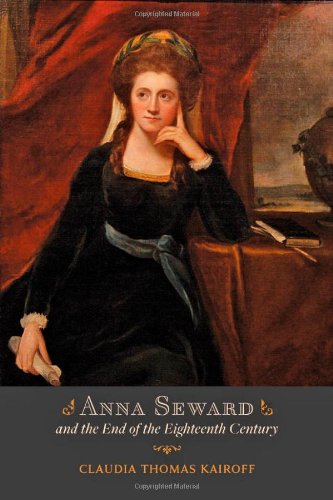

Most ebook files are in PDF format, so you can easily read them using various software such as Foxit Reader or directly on the Google Chrome browser.
Some ebook files are released by publishers in other formats such as .awz, .mobi, .epub, .fb2, etc. You may need to install specific software to read these formats on mobile/PC, such as Calibre.
Please read the tutorial at this link: https://ebookbell.com/faq
We offer FREE conversion to the popular formats you request; however, this may take some time. Therefore, right after payment, please email us, and we will try to provide the service as quickly as possible.
For some exceptional file formats or broken links (if any), please refrain from opening any disputes. Instead, email us first, and we will try to assist within a maximum of 6 hours.
EbookBell Team

4.4
52 reviewsAnna Seward and her career defy easy placement into the traditional periods of British literature. Raised to emulate the great poets John Milton and Alexander Pope, maturing in the Age of Sensibility, and publishing during the early Romantic era, Seward exemplifies the eighteenth-century transition from classical to Romantic. Claudia Thomas Kairoff’s excellent critical study offers fresh readings of Anna Seward’s most important writings and firmly establishes the poet as a pivotal figure among late-century British writers.
Reading Seward’s writing alongside recent scholarship on gendered conceptions of the poetic career, patriotism, provincial culture, sensibility, and the sonnet revival, Kairoff carefully reconsiders Seward’s poetry and critical prose. Written as it was in the last decades of the eighteenth century, Seward’s work does not comfortably fit into the dominant models of Enlightenment-era verse or the tropes that characterize Romantic poetry. Rather than seeing this as an obstacle for understanding Seward’s writing within a particular literary style, Kairoff argues that this allows readers to see in Seward’s works the eighteenth-century roots of Romantic-era poetry.
Arguably the most prominent woman poet of her lifetime, Seward’s writings disappeared from popular and scholarly view shortly after her death. After nearly two hundred years of critical neglect, Seward is attracting renewed attention, and with this book Kairoff makes a strong and convincing case for including Anna Seward's remarkable literary achievements among the most important of the late eighteenth century.